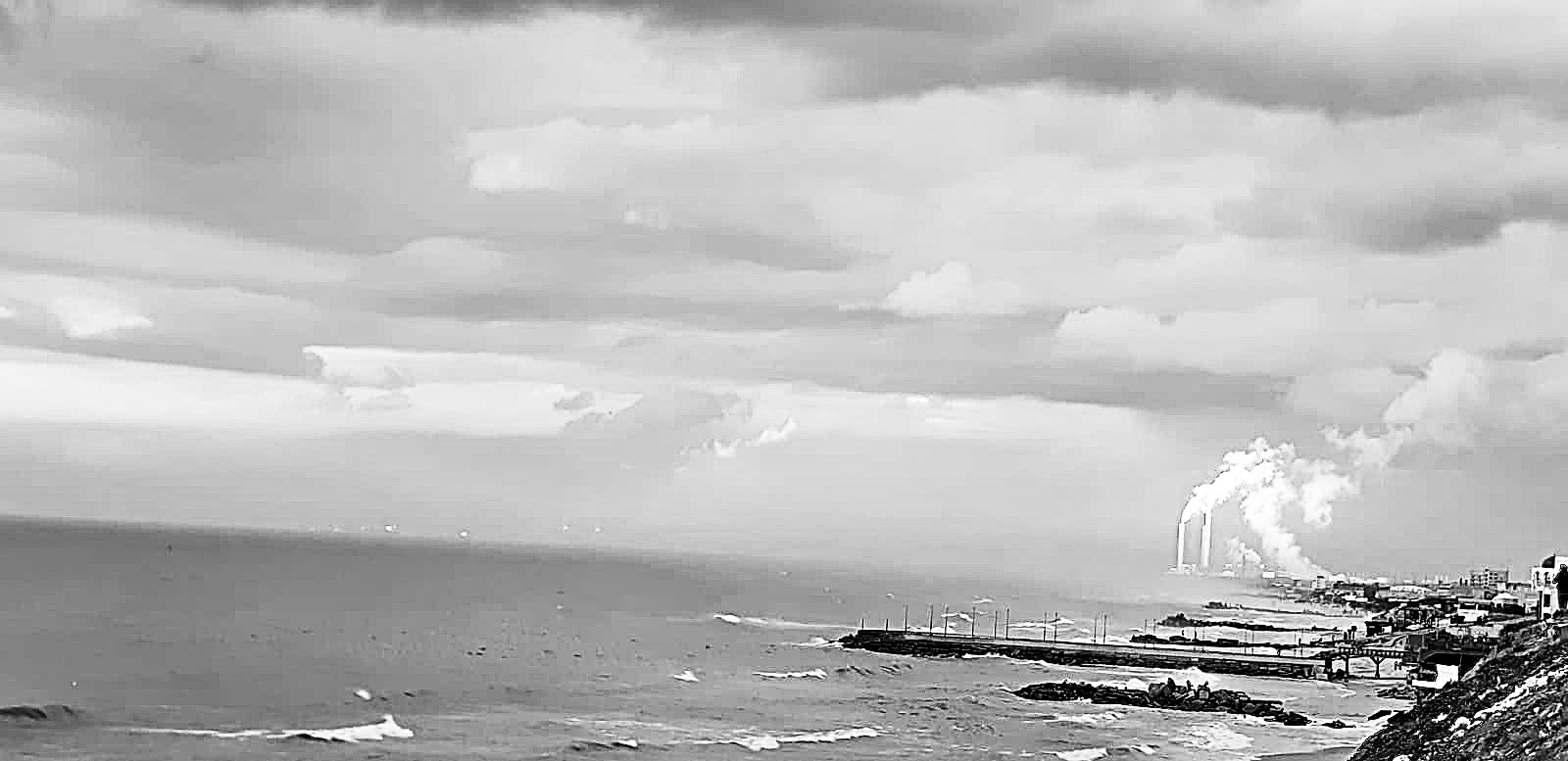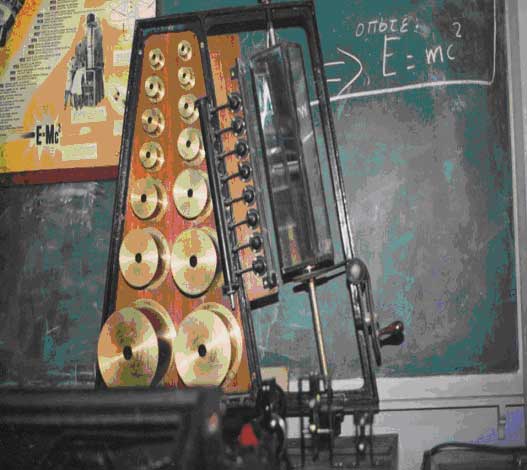Visiting Ramallah and Birzeit – a road trip
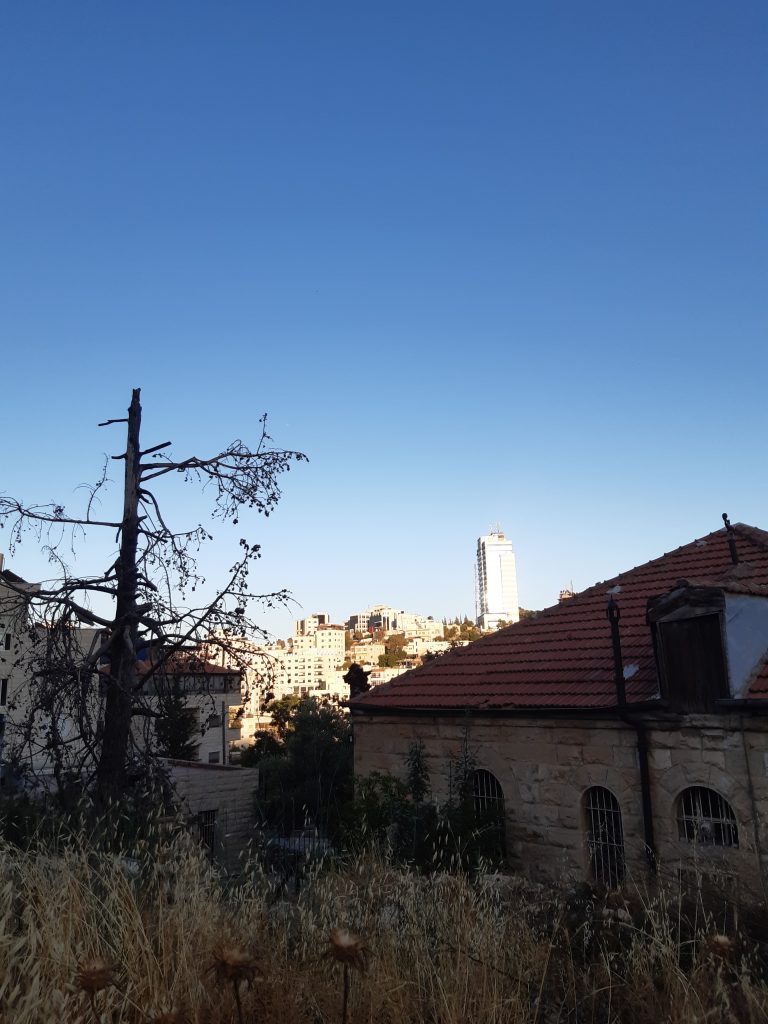
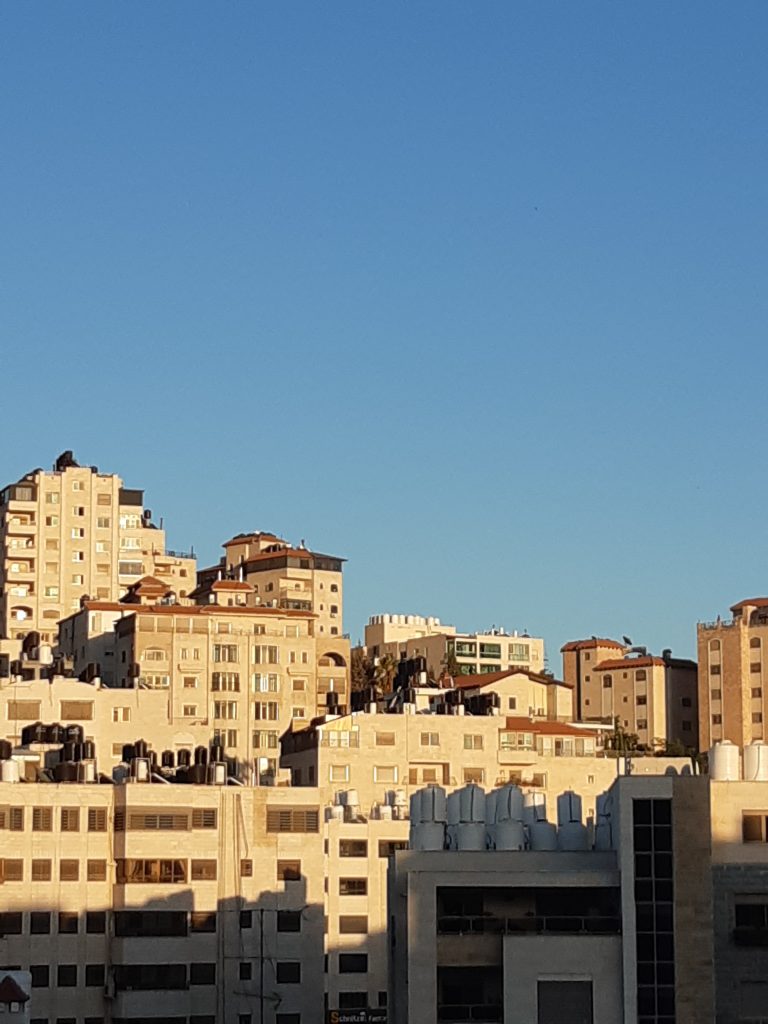
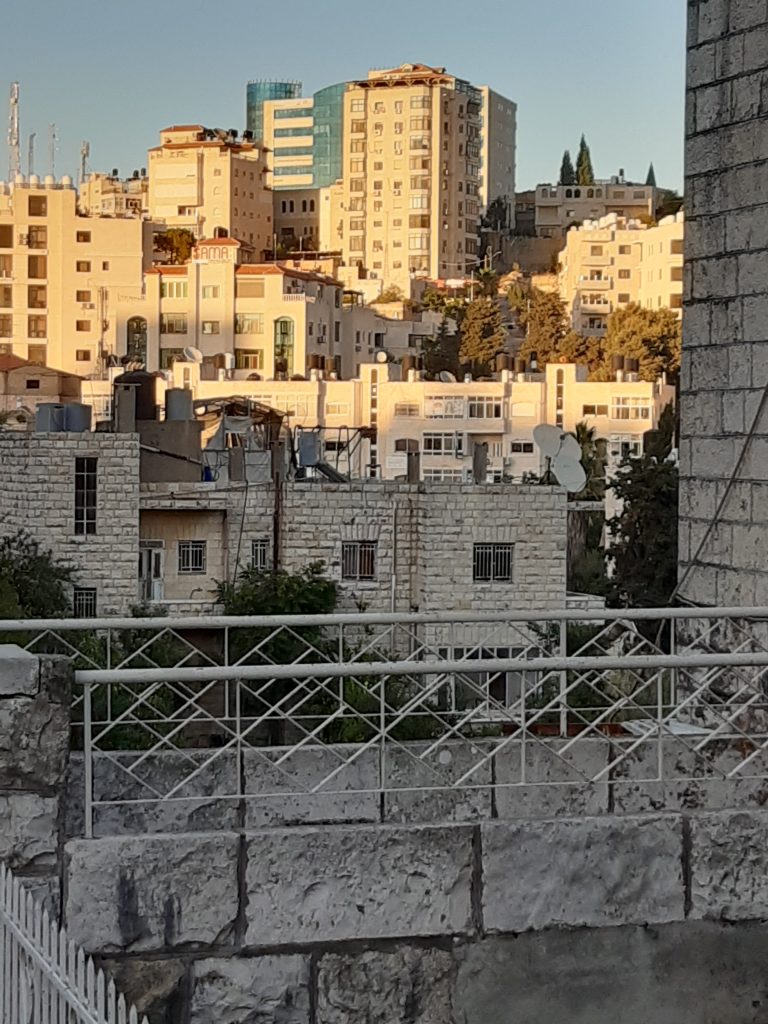
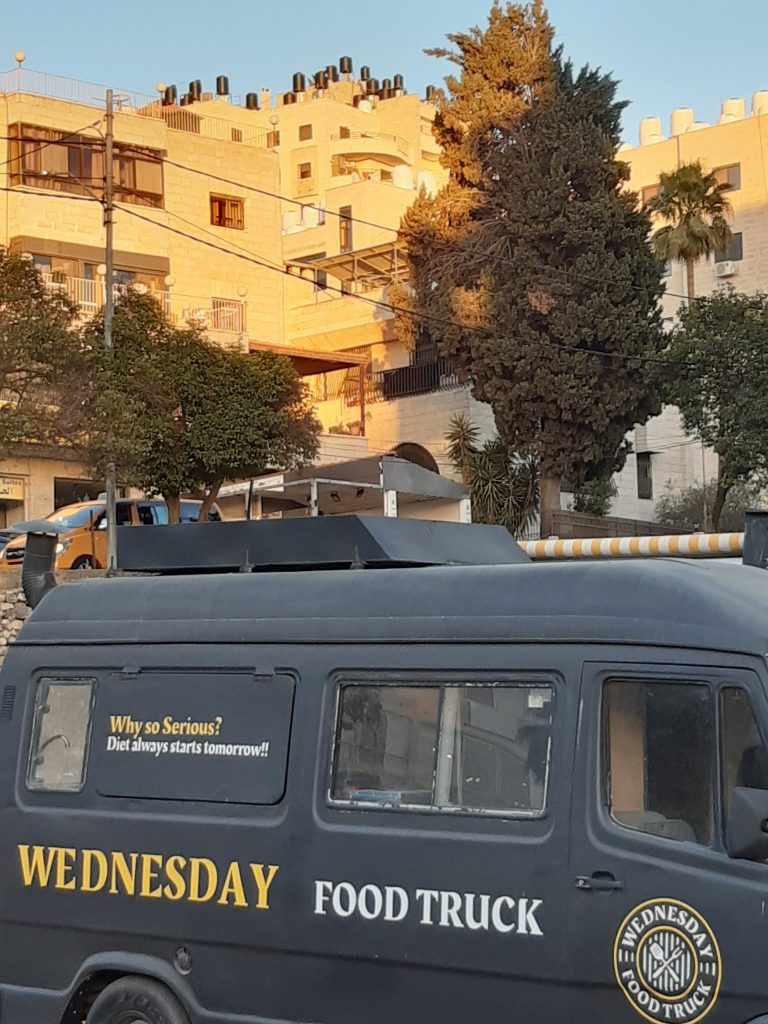
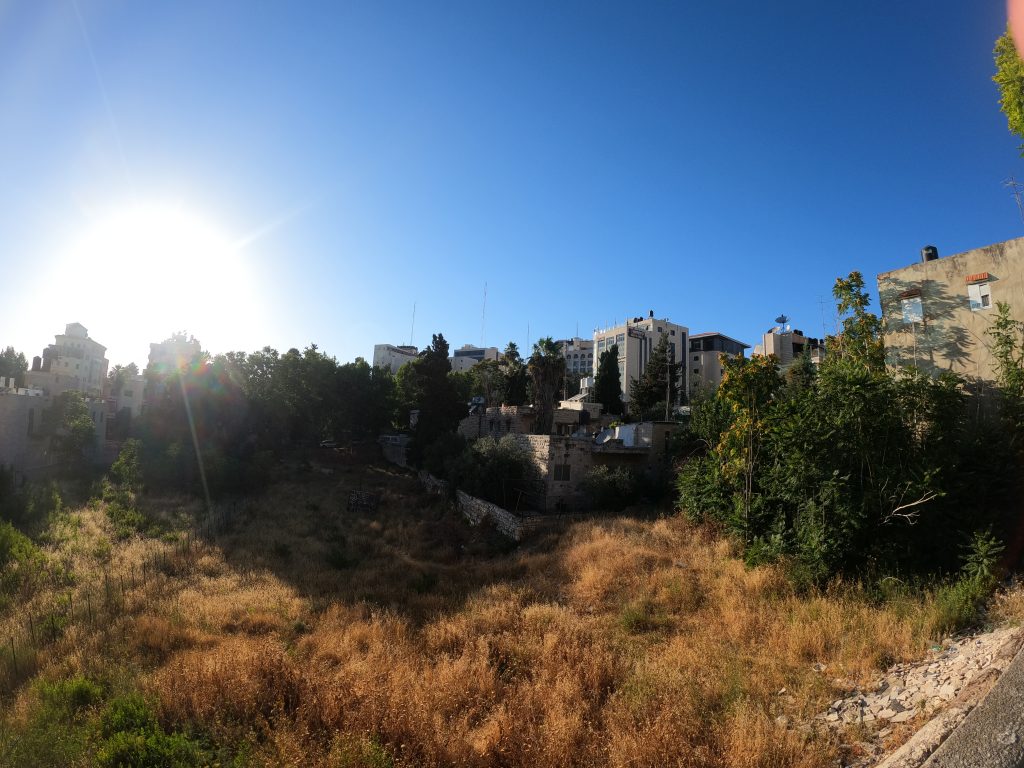

Visiting Ramallah and Birzeit University in June 2022 came unexpectedly and took place within the framework of Erasmus+ staff exchanges. The prospect of the trip shook the still waters of lockdowns of the previous winters and, although it came when work overload had already piled up, I saw it as an opportunity to meet up with colleagues again and get to know the actual place and its life and vibes.
This means that a big part of the visit happened on the move.
Normally, this does not have to be a very long journey, especially when you come from Europe and have a EU passport. Then, you book a flight (direct or transfer) and land in Tel-Aviv. However, after landing, the simple can become complicated. To get around things and manage to stay true to the main purpose to develop the planning of the project, I chose to spend a night in Jerusalem and then head to the West Bank from there. Soon I realized that my plan might have to freeze, since it happened that the day after was a Sabbath, which complicated movement and transfers.
Fortunately, my good friend and colleague Dr Ahmad Fteiha, who was going to drive to Birzeit on the same day, offered to give me a lift there. And the journey to Ramallah turned into a road trip in many ways.
Continue reading “Visiting Ramallah and Birzeit – a road trip “Teaching STEM with technology and collaborative work
Out-of-the-box approaches and practices for thinking critically
authored by Marianna Vivitsou
Thinking STEM in education
The theme of STEM education is intertwining with many of the basic areas of interest in OLIVE and relates to different outputs and project activities.
These include, among others, the need to establish virtual peer mentoring teams to strengthen exchange of ideas and learning from one another, to define new practicum strategies and set a framework for shared teaching in the OLIVE partner universities. Undoubtedly, this is a complex situation. Yet, this is not the only kind of complexity that approaching STEM education presents.
As it spans across major fields of science, research and teaching, considerations arise concerning the epistemologies and the pedagogies that should underlie the effort to introduce a working model of STEM (i.e., an acronym for Science, Technology, Engineering and Mathematics) in education. In addition to that, although science, technology, engineering and mathematics related occupations are expected to experience rapid growth in the years to come, STEM does not seem to be for all.
Recent studies show that gender gaps and other divides and inequalities in the professional domain are rooted within expectations, stereotypes and structures established and observed early in the education continuum. In alignment with these, an introduction to a collection of articles with a focus on participation barriers, Nature Research and Scientific American point out that many groups are underrepresented in research including women, ethnic minorities, people with disabilities and socially disadvantaged populations. Far more action, therefore, needs to be taken in institutions and scientific communities.
Taking these insights into consideration, in the pedagogical team of OLIVE we departed to set some commonly agreed principles aiming to frame the basis of joint work. At the same time, we recognized the need to think and act differently and in ways that would align with out-of-the-box approaches and practices. «Out of the box» is a metaphor that signifies new, creative ways that are go beyond established (here, teaching) practices and look into the multiple dimensions of phenomena with a critical eye.
Continue reading “Teaching STEM with technology and collaborative work”